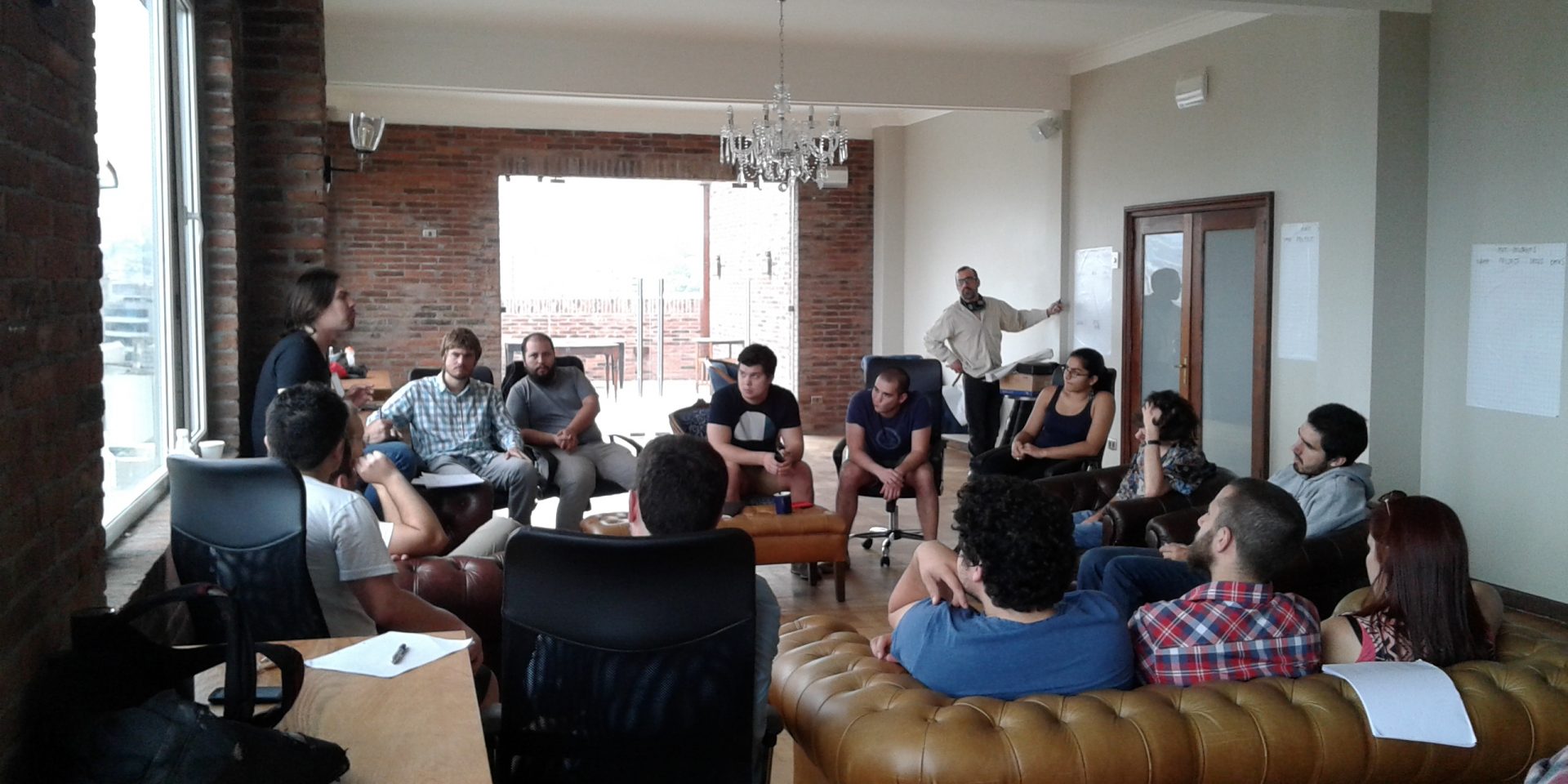

The II Workshop organized by the Center for Research in Social Complexity (CICS), the Laboratory of Evolution and Interpersonal Relations (LERI) and the Center for Advanced Studies (CEA), deepened the study of the construction of social relations from psychology, neurosciences and tools traditionally used in economics.
“Let’s be bilingual in terms of discipline.” With this invitation, conducted by the Director of the NeuroCICS Laboratory Pablo Billeke, started the second interdisciplinary Conference “Bases of Human Behavior 2017”, a space in which young researchers and general public interested in science and understanding of human behavior participated.
This new edition was organized by the Center for Research in Social Complexity (CICS) of the Faculty of Government of the Universidad del Desarrollo, the Center for Advanced Studies (CEA) of the Universidad de Playa Ancha and the Laboratory of Evolution and Interpersonal Relations (LERI) of the Universidad de Santiago de Chile. For two days 11 researchers from different centers, students of the Doctorate in Social Complexity and visiting professor from Spain, Cristina Acedo, presented their perspectives from the sciences interested in human behavior.
Continuing the idea of expanding the conversation on these subjects between different disciplines and centers of knowledge, the Conference was divided in two days. The first took place on October 12 at Campus San Carlos of the Universidad del Desarrollo, while the second was held at CEA units in Viña del Mar.
José Antonio Muñoz, researcher and coordinator at the Animal and Human Behavior Laboratory (LABCAH in spanish), emphasized that these spaces “reflect a natural process of scientific and academic integration that has taken place between the CEA and the CICS, having as articulating axis a sincere scientific interest in investigating the biological bases that explain human behavior. It is at these points that the work we are doing at the level of dissemination, science and teaching, finds a meaning and a medium-term projection. ”
This initiative is another example of collaboration, in addition to the FONDECYT project which is being developed by UDD, USACH, UMCE and UPLA on the study of cooperation and aggression in men, as well as other initiatives of scientific excellence that intertwine shared research interests towards the achievement of institutional development goals.
Carlos Rodríguez-Sickert, director of CICS, agrees that “the dialogue that takes place in events such as Bases allows the formation of interdisciplinary training and research networks around themes of common interest such as cooperation or the foundations of morality in which brings together approaches from both, the traditional social sciences and the natural sciences. We hope that the links we have formed with pair institutions such as LERI and LABCAH we can continue to strengthen this new approach”.
With the participation of diverse institutions from different regions of the country and with a specialized and interested public, it presented a fruitful instance for the interdisciplinary discussion and opened new possibilities of cooperation between the participants. Alexis Dagnino, a researcher at the Center for Neurobiology and Brain Plasticity at the Universidad de Chile, said that his participation in the First Workshop of Bases opened a new path in his work on stress, to analyze it from the perspective of social interaction.
At the same time, it allowed the Study Houses to be positioned as poles of scientific development with robust multidisciplinary work teams capable of generating lasting bridges of collaboration with other institutions.